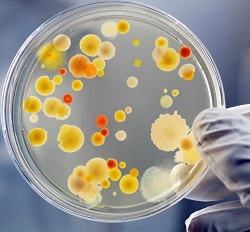AMSBIO has published details of an independent test which shows that its own lytic enzyme mix, called Zymolyase, demonstrated superior performance to Lyticase and Glusulase in the generation of yeast protoplasts.
Zymolyase is an enzyme mix which digests the cells walls of yeasts and fungi. According to this undated* study, performed by Dr David Burden of Biotechnology Training & Consulting in New Jersey, USA, it offers greater performance at lower cost for applications including protoplast and spheroplast preparation, transformation of yeast cells, yeast cell fusion, and yeast genetics.
The three enzymes were tested on Saccharomyces cerevisiae and Pichia pastoris to compare their performance as reagents for yeast cell wall degradation for protoplast formation. Zymolyase formed 100% protoplasts within ten minutes, while Lyticase required a 70 minute incubation period to form 100% protoplasts and Glusulase “failed to be completely effective” with only 80% protoplast formation.
Zymolyase is purified from culture fluid of Arthrobacter luteus, and says Amsbio has strong lytic activity against living yeast cell walls to produce protoplasts or spheroplasts of various strains of yeast cells. The company offers the enzyme with lytic activity of either 20,000 units per gram or 100,000 units per gram, as Zymolyase-20T or Zymolyase-100T.
The report, ‘Comparison Zymolyase vs Lyticase and Glusulase‘, can be downloaded as a PDF.
* Although recently made available by Amsbio, LabHomepage notes that the report itself is not dated and that the research it lists in its references dates back to the 1980s and before. We asked for confirmation of when the work was carried out, and were told that it was “some time ago”. Amsbio points out that “the latest 2011 independent publications on the benefits of Zymolyase are available on its website”. Nevertheless it is clear that the report referred to in this press release, sent out in February 2012, was produced around 1987.

